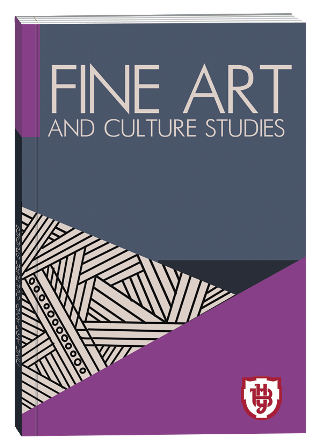THE FORMATION OF NATIONAL IDENTITY ON THE EXAMPLE OF THE VOCAL AND PEDAGOGICAL ACTIVITIES OF THE FOUNDERS OF THE LVIV VOCAL SCHOOL
DOI:
https://doi.org/10.32782/facs-2024-1-16Keywords:
national identity, Lviv vocal school, vocal traditions, Solomiia Krushelnytska, Oleksandr Myshuha.Abstract
The article examines the formation of the Lviv vocal school in the context of European vocal schools and the vocal music culture of Ukraine. The outlined achievements of the Ukrainian vocal tradition have been concentrated for several centuries in the professional sphere of the church and choral music. They became fundamental factors in the formation of soloists, who were influenced by the educational and performing model of the musical culture of Ukraine. The national Ukrainian vocal music school represents the idiosyncrasies of the psychological composition of this nation, its music, poetry, language and performance traditions. The influence of the artistic environment of Lviv on the formation of the creative personalities of Oleksandr Myshuha and Solomiia Krushelnytska and this environment's impact on their subsequent concert performances, artistic activities, and participation in the national and cultural revival are also considered in this article. The pedagogical influence methods of Oleksandr Myshuha and Solomiia Krushelnytska on the formation of the young singers' national identities were analyzed. Representing Ukraine on the world stage, Solomiia Krushelnytska performed both the European classical music and Ukrainian folk songs in all her concerts. She used an empirical method in her pedagogical work, which focuses on the experience-based knowledge. She also used to have all students at the vocal classes, without an accompanist present. The cooperation of the student and the teacher built in this way helps in forming the vocalist's melodic and vocal ear, assists in revealing the content and character of a particular composition, and develops artistic thinking and analysis. Famous opera singer and teacher Oleksandr Myshuha, like Solomiia Krushelnytska, studied the Italian bel canto school foundations. He used sound emission as an important characteristic of the voice related to timbre and emphasized that the sound should be even, clear and voluminous. Studying with various well-known teachers and working on the voice, he invented his method of teaching vocal. This method was later described by his student Mykhailo Mykysh in the work "Practical Foundations of Vocal Art", where everything was logically grounded, understandable both practically and theoretically. Thanks to this system, the voice sounds evenly throughout the section, uniting with the words and the language, which is used both in the everyday life and in professional sphere. Therefore, the use of the pedagogical influence methods, vocal performances of the Lviv vocal school founders, and their patronage of young students made an impact in the national identity formation of youth. Oleksandr Myshuha and Solomiia Krushelnytska were the first singers who opened Ukraine to the world through a Ukrainian folk song, by demonstrating their patriotism and sense of belonging to the Ukrainian nation.
References
Антонюк В. Становлення вокально-професійної освіти в Україні: проблема поліетнічності: Дослідницька праця. – К.: Українська ідея, 1999. – 28 с.
Антонюк В. Вокальна педагогіка (сольний спів): Підручник. - К.: ЗАТ «Віпол», 2007. – 174 с.
Бандрівська О. Науково-методичні праці, статті, рецензії / упоряд., ред., перекл., прим., комент. Роксоляна Мисько-Пасічник, передм. Люба Кияновської; вступ Мирослава Жишкович. Львів: Апріорі, 2002. 147 с. (Наукові збірки ЛДМА ім. М. Лисенка. Вип. 6).
Гнидь Б. Українська вокальна школа в контексті світового виконавського мистецтва. Науковий вісник НМАУ ім. П. І. Чайковського. Київ, 1999. Вип. 8. – С. 7–17.
Головащенко М. Олександр Мишуга – король тенорів. К.: Музична Україна, 2004. – 610 с.: іл.
Головащенко М. Соломія Крушельницька. Ч. 1: Спогади К.: Музична Україна, 1978. – 398 с.
Жишкович М. Освітньо-педагогічні аспекти розвитку вокального мистецтва Львова (друга половина XIX – перша половина XX століття): монографія. Львів: СПОЛОМ, 2012. 256 с.
Липовецький С. Король тенорів Олександр Мишуга., 2012. – Режим доступу: https://www.istpravda.com.ua/authors/4d51b934e8a42/ (дата звернення 21.12.2023)
Федотов Є. К. Г. Стеценко – педагог. – К.: Музична Україна, 1977. – 96 с.
Царук С. М. Роль Львівської вокальної школи у формуванні методичних принципів Олександра Мишуги / С. М. Царук // Науковий часопис Національного педагогічного університету імені М. П. Драгоманова. Серія 14. Теорія і методика мистецької освіти : Збірник наукових праць. – К. : НПУ ім. М. П. Драгоманова, 2015. – Вип. 18 (23). – С. 282–288.







